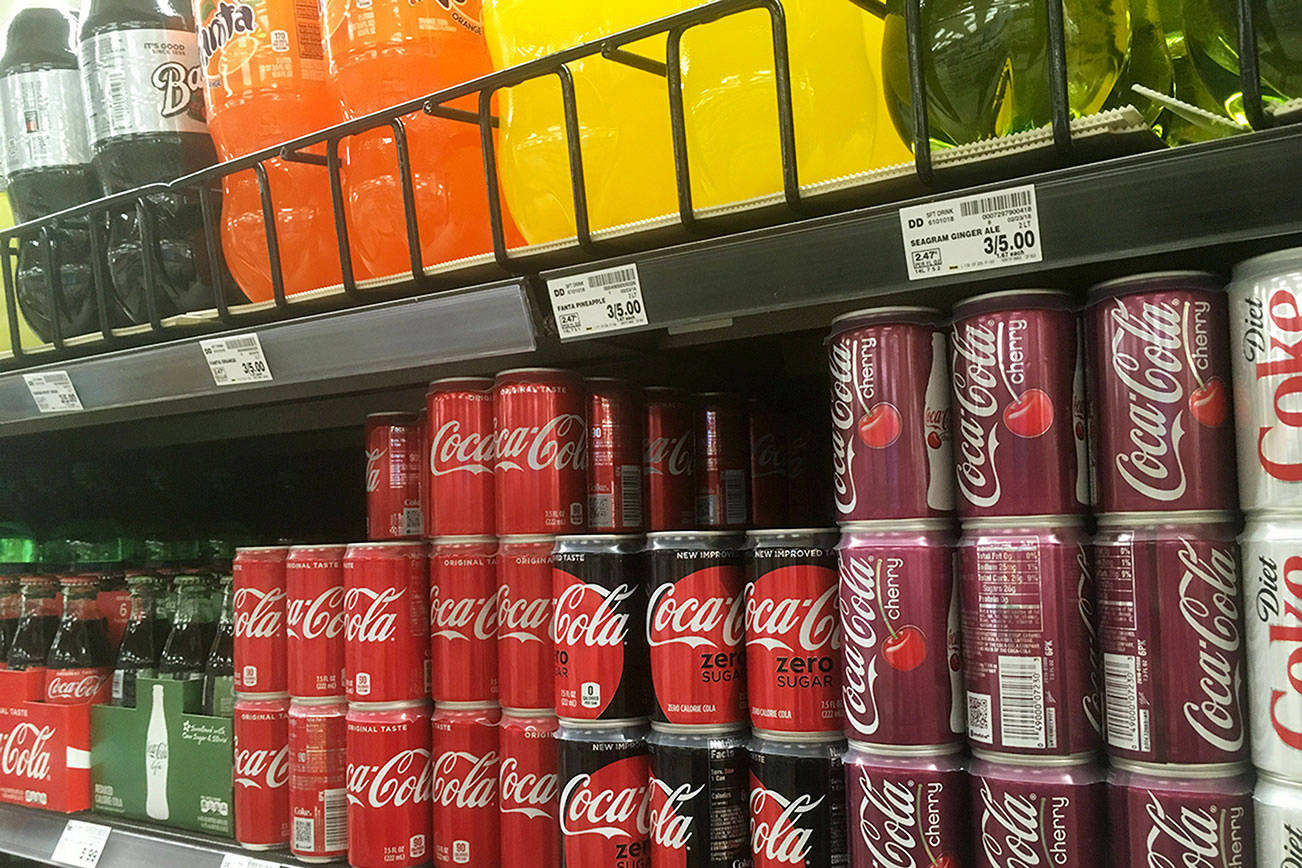OLYMPIA — A ballot measure barring cities from taxing soda pop and many common foods will provide much-needed protection for working families who would be hit hardest by such taxes, supporters said Monday.
“People are worried about how Washington is becoming less affordable,” said union leader Pete Lamb, of Lakewood. “They don’t want local governments to tax their groceries too.”
Lamb, senior business agent for Teamsters Local 174, joined others from around the state Monday to make the case for Initiative 1634. Backers turned in more than 360,000 signatures last week and if at least 259,622 are valid registered voters, the item will earn a spot on the November ballot.
The measure seeks to pre-empt the ability of local governments to impose “any tax, fee, or other assessment on groceries.” Among items covered are meat, poultry, fish, fruits, vegetables, grains, bread, milk, cheese and other dairy products, nonalcoholic beverages, condiments, spices, cereals, seasonings and eggs.
Such taxes pose a greater financial burden on low-income and working class families, supporters said. As costs of the taxed products go up, demand for them will go down. Over time this would result in a loss of jobs for those who make, deliver and stock the products, they said.
The proposed initiative does not prevent lawmakers from approving such taxes statewide. Alcoholic beverages, tobacco and marijuana products, which are regulated and taxed by the state, are excluded from the measure.
Supporters acknowledged Monday the soda tax enacted by the city of Seattle is a motivation.
It “provides the level of protection my neighbors and I need,” said Keilynn Manley, of Spokane. “Once they reach into your grocery cart, where does it stop?”
No city in Washington is pursuing a tax on soda pop or food.
Initiative 1634 is “a proactive approach,” said campaign spokesman Michael Mandell.
Producers of soft drinks are the driving force behind the Washington measure and part of the beverage industry’s broader strategy of getting states to approve local pre-emptions. California lawmakers did so last month.
Public health advocates are frustrated.
“It is disappointing that Big Soda is spending hundreds of thousands of dollars (and potentially millions throughout the entire campaign) to restrict choices for local towns and cities that struggle to support and sustain critical community programs,” emailed Aaron Pickus, spokesman for the Seattle Healthy Kids Coalition.
The American Cancer Society Cancer Action Network, which has not taken a position on the proposed initiative, issued a statement critical of efforts to thwart local decision-making power.
“Passing public health policies at the local level creates community debate, education, and engagement opportunities that might not exist at the state or federal level,” the statement reads.
In Washington, the American Beverage Association drew up the measure and the nation’s leading soda pop producers are bankrolling the effort. An alliance that includes the Joint Council of Teamsters No. 28, which represents beverage industry workers, the Washington Food Industry Association and the Korean-American Grocers Association of Washington, is helping spread the message.
Yes! to Affordable Groceries!, the political committee behind the campaign, reported raising $4.76 million as of Monday, according to records posted online by the Public Disclosure Commission.
The Coca-Cola Co. is the largest donor thus far, at $2.3 million followed by PepsiCo at $1.7 million and Dr Pepper Snapple Group Inc. at $709,000.
As of Monday, no organized opposition had surfaced.
Pickus said the coalition and other public health organizations are evaluating their options.
Jerry Cornfield: 360-352-8623; jcornfield@herald net.com. Twitter: @dospueblos.
Talk to us
> Give us your news tips.
> Send us a letter to the editor.
> More Herald contact information.

























